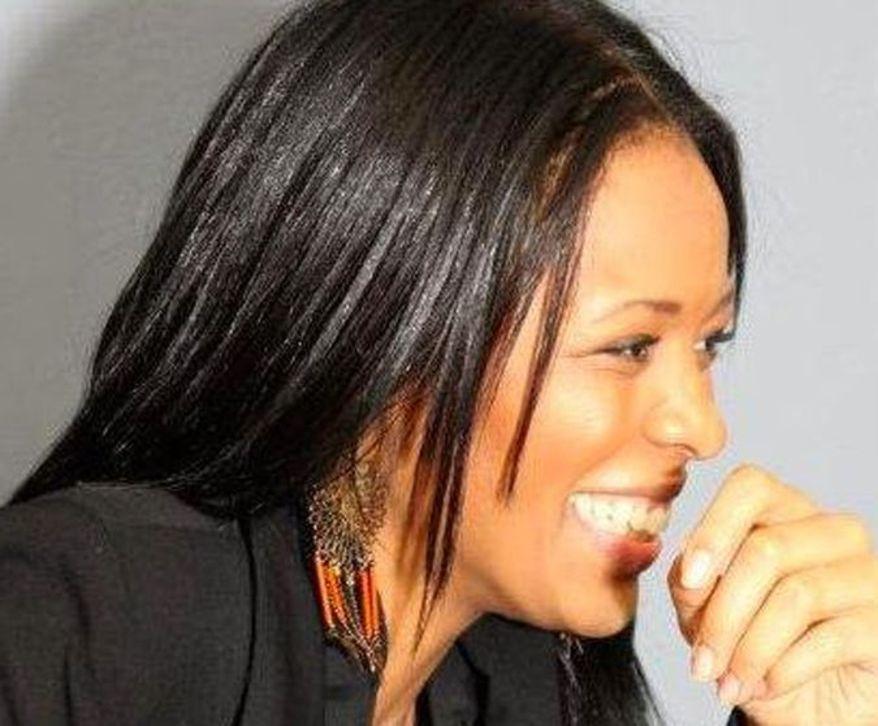Sociology professor Saida Grundy doesn’t start her new job at BU until July 1, but she already finds herself in the middle of a heated debate.
Sociology professor Saida Grundy doesn’t start her new job at Boston University until July, but she’s already well-known on campus. She created a firestorm recently when she tweeted in response to University of Oklahoma students caught on video singing a blatantly racist song.
“White masculinity isn’t a problem for America’s colleges,” Grundy tweeted. “White masculinity is THE problem for America’s colleges.”
The tweets went viral and BU was far from happy. The commotion raised lots of questions about whether professors employed by universities should express their personal opinions on social media.
“I’d like us to see universities have a higher bar in terms of respecting the free speech rights of employees,” says Sasha Costanza-Chock, a professor of civic media at MIT. He says many higher education institutions are still trying to figure out what to do in the new media landscape. So are the professors themselves, and Costanza-Chock says it’s on them to understand their role.
“A university professor is in a position of certain kind of influence and power over the students that they’re working with, so we expect them to consider that when they’re expressing their ideas publicly,” says Costanza-Chock.
BU isn’t the only school caught in the crossfire between free speech and social responsibility.
At the University of Kansas, a professor was suspended for a tweet that criticized the National Rifle Association after the Navy Yard shooting in Washington, DC. The Kansas Board of Regents has taken steps to regulate professors on social media.
Last week, a priest at Seton Hall University says he was fired after posting a Facebook message supporting gay marriage. “People are taking you as an intellectual,” says Peniel Joseph, who teaches history at Tufts University where he directs the Center for Race and Democracy. “You’re not just a private person. Your tweets have to be as nuanced as possible.”
Joseph thinks if you’re a professor and have taken a job with a university, you should have the right to tweet how you feel about university issues. “At the same time, what happens is that what you say in social media can also follow you and have some consequences that are unintended,” Joseph says.
One problem is that academics with strong opinions — and big personalities — often struggle to express themselves in 140 characters. Still, Joseph says they should be mindful when discussing controversial topics. “Subject matters like race, absolutely you have to talk about, but you have to try to not categorize whole populations,” he says.
Boston University has condemned Seida Grundy’s tweets for categorizing young white males. BU’s faculty union says it supports her right to express her views without the threat of censorship.
At this point, though, it’s unclear whether Grundy’s tweets will continue to generate controversy or serve as the beginning of a public conversation. For now, her Twitter account is private.
This story was produced by On Campus, a public radio reporting initiative focused on higher education produced in Boston at WGBH.
